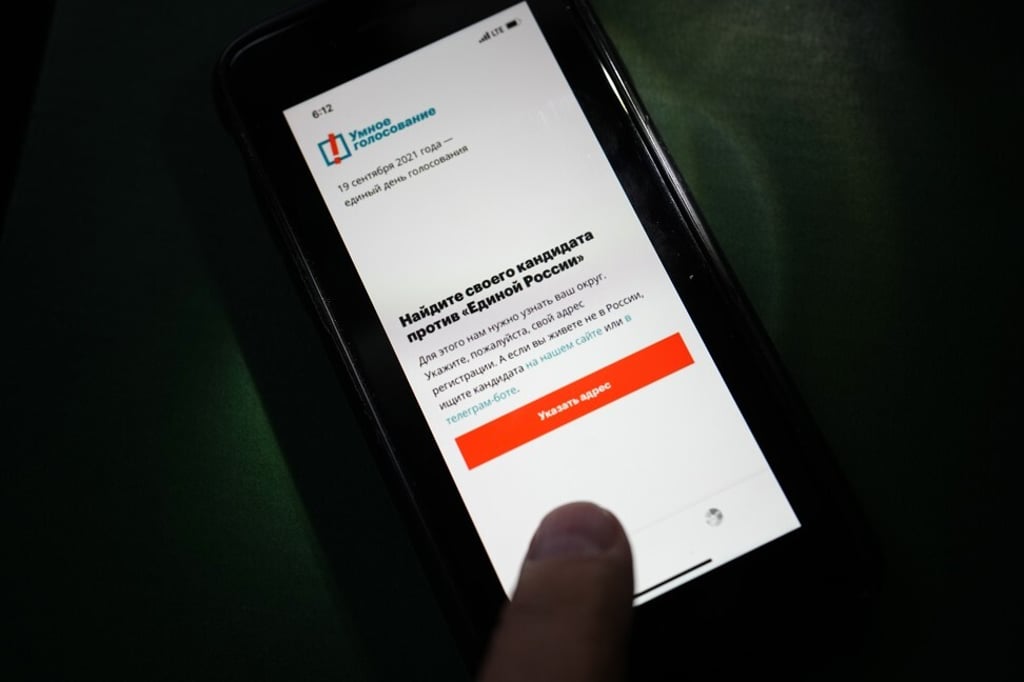Advertisement
Facebook, Google and other Big Tech firms face more fines in Russia as Kremlin curbs access to information online
- Russia’s internet regulator said foreign tech firms could face amends of 5 to 20 per cent for failing to take down information judged to be illegal
- Google and Apple recently bowed to pressure to remove an app called Smart Voting after authorities accused the companies of election interference
Reading Time:3 minutes
Why you can trust SCMP

Russia’s internet regulator is poised to significantly raise the fines it has slapped on US technology companies such as Facebook Inc and Alphabet Inc as the Kremlin escalates its push to curb access to information online.
Companies that refuse to delete content judged to be illegal in Russia could soon face amends of 5 per cent to 20 per cent of their annual local revenue, Roskomnadzor, the federal communications watchdog, said in an email Monday.
“For a number of companies that have systematically refused to comply with the agency’s legal demands, the issue of fines on revenue is being considered in the near future,” the press service said. It will also consider other means of enforcement, it said.
Advertisement

Russia has ratcheted up pressure on foreign technology companies amid a broader crackdown on anti-Kremlin opposition this year. Last week, Apple Inc and Alphabet’s Google bowed to pressure to remove an app, called Smart Voting, designed to help protesters vote out ruling party politicians, after authorities accused them of meddling in parliamentary elections.
Advertisement
The government has moved aggressively to curb access to information since the arrest of opposition leader Alexei Navalny in January following his return to Russia. Many independent media outlets have been tagged “foreign agents” and forced to close or conform to onerous reporting requirements.
Advertisement
Select Voice
Select Speed
1.00x